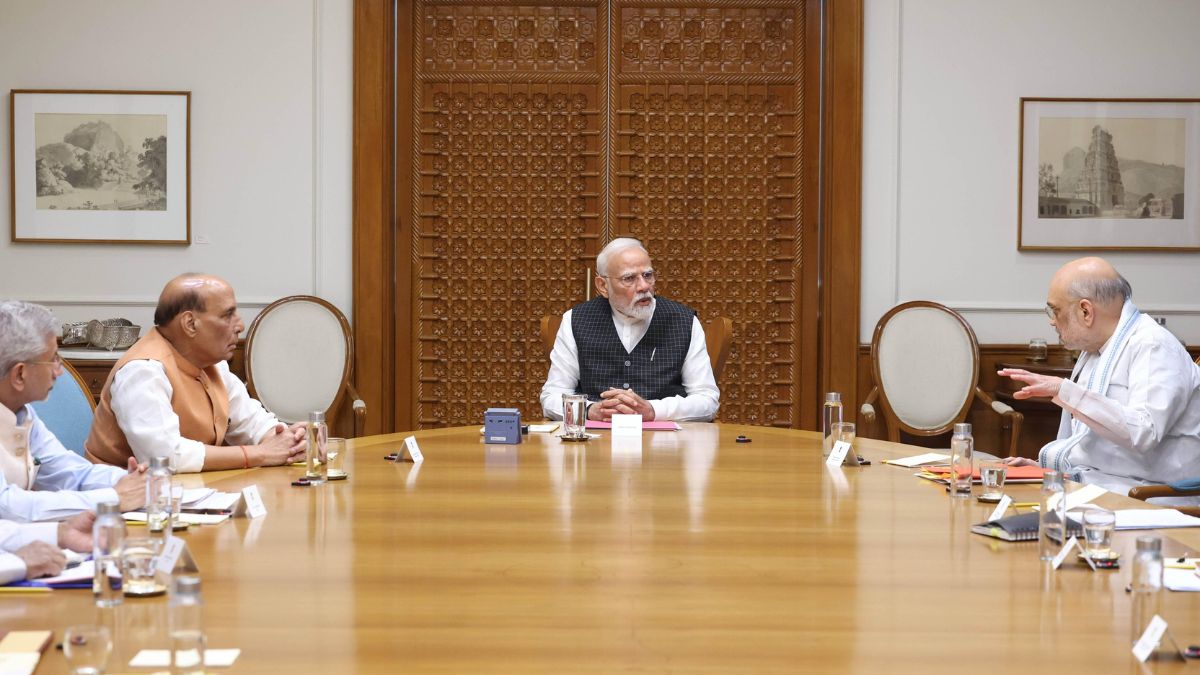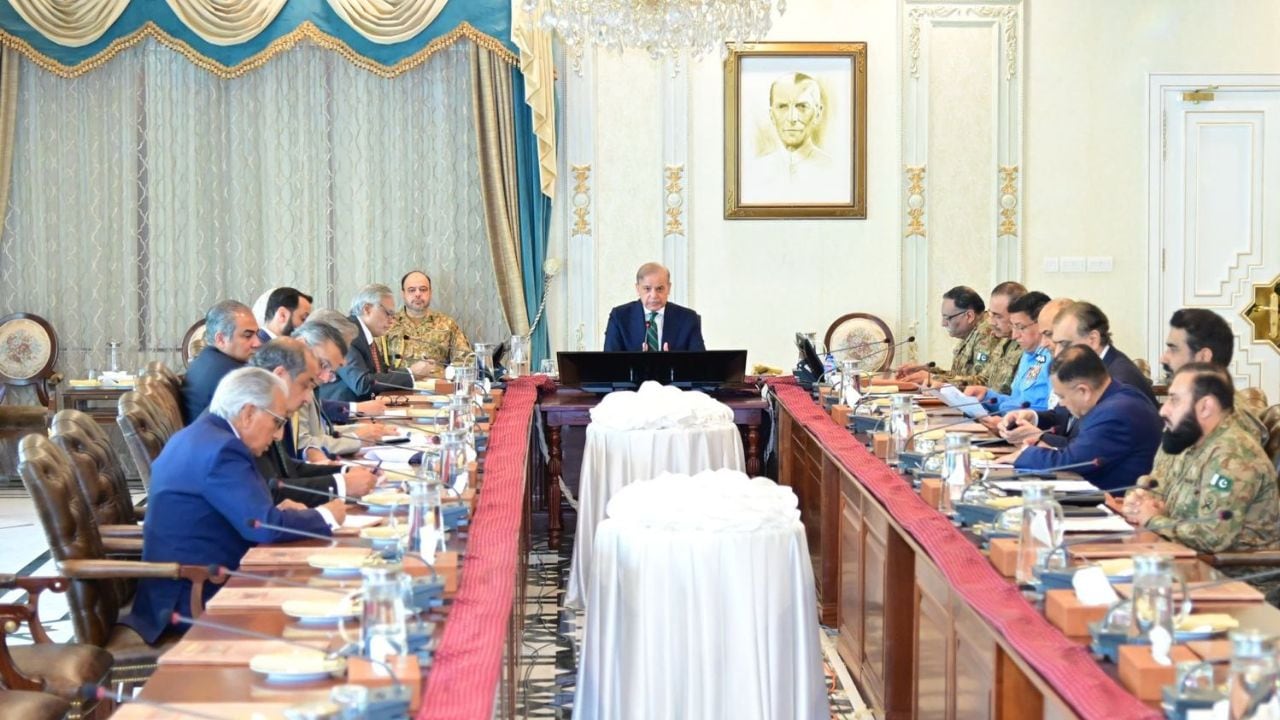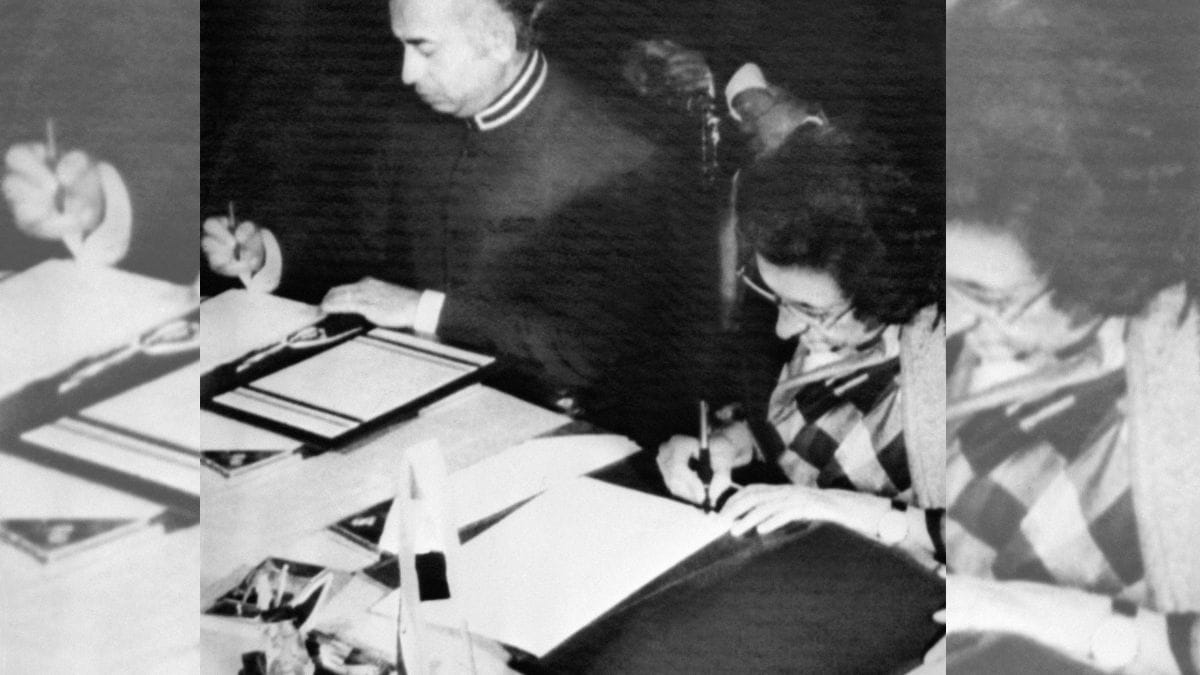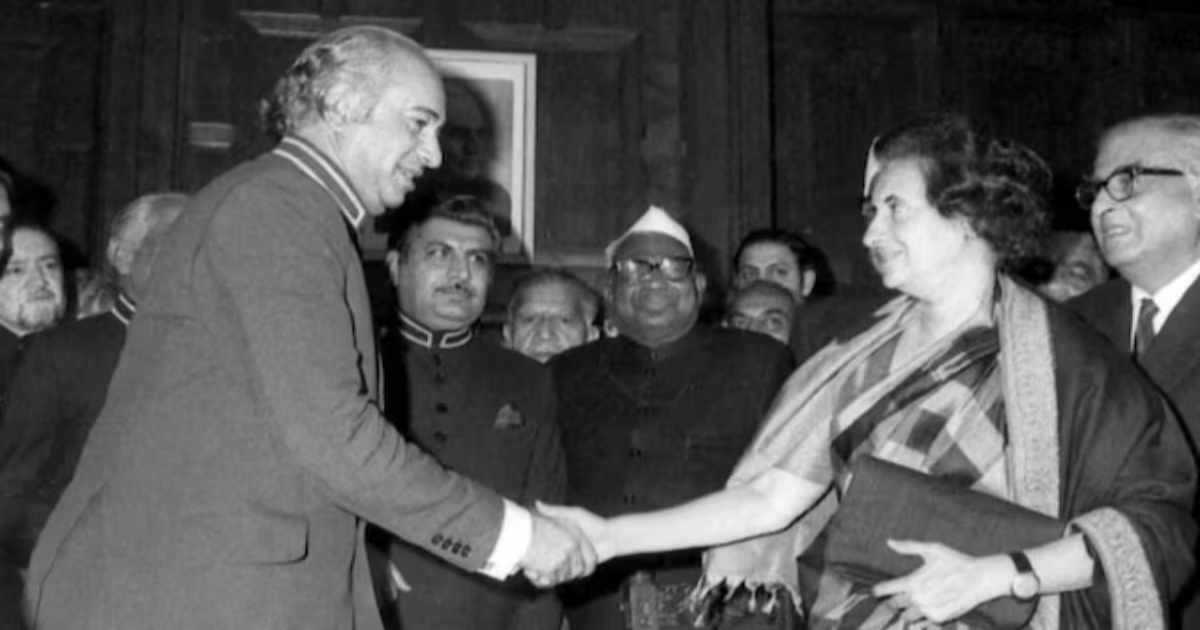Diplomatic tension between India and Pakistan has escalated following the devastating Pahalgam terror attack on April 22. Terrorists, armed with automatic assault rifles, targeted a tourist destination in Jammu and Kashmir, killing 26 people triggering angry responses from various quarters in India. While India took five big security measures against Pakistan, Islamabad responded dramatically.
Following an hour-long meeting of Pakistan’s National Security Committee (NSC), which was chaired by Pakistan’s Prime Minister Shehbaz Sharif, the cash-strapped country introduced a host of measures it will take against India. Not only did Pakistan close its airspace for Indian airlines and suspend all trade with the fifth-largest economy in the world, but it also put on hold all bilateral treaties with New Delhi, including the 1972 Simla Agreement.
While Pakistan wanted to give a stern reply to India’s hits, it unwittingly handed India three major advantages by suspending the 1972 agreement. Before we dive into those advantages, it becomes important to understand how India and Pakistan got here and what the Simla Agreement entails.

How did we get here?
Following the Pahalgam attack, India’s Cabinet Committee on Security (CCS) conducted a meeting. Following the meeting, it was announced that India is implementing five measures which New Delhi has termed as “a decisive response to cross-border terrorism”. These measures were as follows:
- The Indus Waters Treaty of 1960 will be held in abeyance with immediate effect until Pakistan credibly and irrevocably abjures its support for cross-border terrorism.
- The Integrated Check Post Attari will be closed with immediate effect.
- Pakistani nationals will not be permitted to travel to India under the Saarc Visa Exemption Scheme (SVES) visas. Any SVES visas issued in the past to Pakistani nationals are deemed cancelled. Any Pakistani national currently in India under an SVES visa has 48 hours to leave India.
- The defence/military, naval and air force advisers in the Pakistani High Commission in New Delhi are declared persona non grata. India will be withdrawing its own defence/navy/air force advisers from the Indian High Commission in Islamabad.
- The overall strength of the high commissions will be brought down to 30 from the present 55.
A day after these measures were introduced, Pakistan held its own security committee meeting in search of a befitting response to India. The following are the countermeasures Pakistan decided to take:
- Rejection of India’s move to suspend the Indus Waters Treaty warns that any diversion will be treated as an ‘Act of War’.
- Suspended the Simla Agreement and all bilateral agreements with India until India changes its conduct.
- Closure of Wagah Border Post immediately; return allowed only until 30 April 2025.
- Suspended all Saarc visas for Indian nationals, except for Sikh religious pilgrims; Indian SVES holders must exit within 48 hours.
- Declared Indian defence, naval, and air advisers persona non grata, to leave by 30 April 2025; reduced Indian high commission staff to 30 personnel.
- Closure of Pakistan’s airspace to all Indian-owned or operated aircraft immediately.
- Suspended all trade with India, including third-country routed trade.
- Pledged a full-spectrum national power response to any threat against Pakistan’s sovereignty.
 Pakistan’s top security body, the National Security Committee (NSC), earlier held a meeting to assess India’s slew of measures against the country
Pakistan’s top security body, the National Security Committee (NSC), earlier held a meeting to assess India’s slew of measures against the country
While the initiatives taken by Pakistan did not surprise New Delhi, one measure which drew eyebrows was the suspension of the Simla Agreement. So what is the agreement all about?
What is the Simla Agreement?
The agreement between the Government of India and the Government of the Islamic Republic of Pakistan on Bilateral Relations, also known as the Simla Agreement, was signed in July 1972 between then-Indian Prime Minister Indira Gandhi and her Pakistani counterpart Zulfikar Ali Bhutto.
The agreement was signed following Pakistan’s comprehensive defeat in the 1971 war, which eventually led to the independence of Bangladesh. The agreement was expected to lay the foundation of a peaceful and stable relationship between the two nations.

The deal emphasises resolving issues between the two in a bilateral manner, superseding the UN’s resolution on Kashmir. The fact that there has been only ne limited war since the agreement was signed reflects its effectiveness. The agreement stressed that nations go back to the Line of Control (LoC) and respect the region.
3 big advantages suspension of the deal offers to India
While the suspension of the decades-old deal hampers the bilateral diplomatic routes both nations have taken, it opens doors to new possibilities. The following are the three big advantages India can have:
Sanctity of LoC gone
Subsections 1 and 2 of clause 4 of the Simla Agreement stated the following:
(1) Indian and Pakistani forces shall be withdrawn to their respective side of the international border.
(2) In Jammu and Kashmir, the Line of Control resulting from the cease-fire of December 17, 1971, shall be respected by both sides without prejudice to the recognised position of either side. Neither side shall seek to alter it unilaterally, irrespective of mutual differences and legal interpretations. Both sides further undertake to refrain from the threat or the use of force in violation of this Line.
With the suspension of the Simla Agreement, the validity of LoC comes into question. Now, either side, especially India, can take steps it deems fit to alter LoC unilaterally. Interestingly, Pakistan has violated the Simla Agreement in the past.
 An Indian Army soldier uses a drone to keep vigil near the Line of Control (LoC). PTI
An Indian Army soldier uses a drone to keep vigil near the Line of Control (LoC). PTI
In 1984, Pakistan attempted to take control of the Siachen Glacier, an Indian territory demarcated by the Karachi agreement. In response, India launched Operation Meghdoot in 1984, gaining full control of the glacier. With the recent suspension, both countries are no longer obligated to follow the LoC.
Opening of military options
Clause 1, Subsection 2 of the Simla Agreement states the following:
(2) That the two countries are resolved to settle their differences by peaceful means through bilateral negotiations or by any other peaceful means mutually agreed upon between them. Pending the final settlement of any of the problems between the two countries, neither side shall unilaterally alter the situation, and both shall prevent the organisation, assistance or encouragement of any acts detrimental to the maintenance of peaceful and harmonious relations.
The Simla Agreement said India and Pakistan would resolve their differences peacefully. Now, India can take military options without violating any treaty. The military option can be taken to ramp up security in the region frequently affected by terrorist infiltration.
Involvement of global actors
The Agreement compel India and Pakistan to resolve bilateral issues without intervention from global actors. While Pakistan was in good graces with the West when the Agreement was signed, things have changed since then. India can now use the leverage it has over major powers, including the Trump administration in the US, Israel, and West Asian and European countries, to completely isolate Pakistan.
Regardless, Pakistan never respected this part of the treaty, taking matters to an international level, the latest being Pakistan’s outcry over the Abolition of Article 370. Over the years, India has become a key player in the global arena and enjoys the support of several Western actors.
For Example, when the New York Times reported that the Pahalgam tourists were gunned down by “militants in Kashmir,” the US House Foreign Affairs Committee rectified the headline, referring to the gunmen as “Terrorists”.
Hey, @nytimes we fixed it for you. This was a TERRORIST ATTACK plain and simple.
Whether it’s India or Israel, when it comes to TERRORISM the NYT is removed from reality. pic.twitter.com/7PefEKMtdq
— House Foreign Affairs Committee Majority (@HouseForeignGOP) April 23, 2025
India currently enjoys support from the US, Russia, a number of countries across West Asia including Israel, and European nations. Not only this, its ties with China are also improving, causing insecurity in Pakistan. Despite clear advantages that India has with Pakistan putting the Simla Agreement on hold, it remains in the domain of the future to tell how it affects the two countries.
